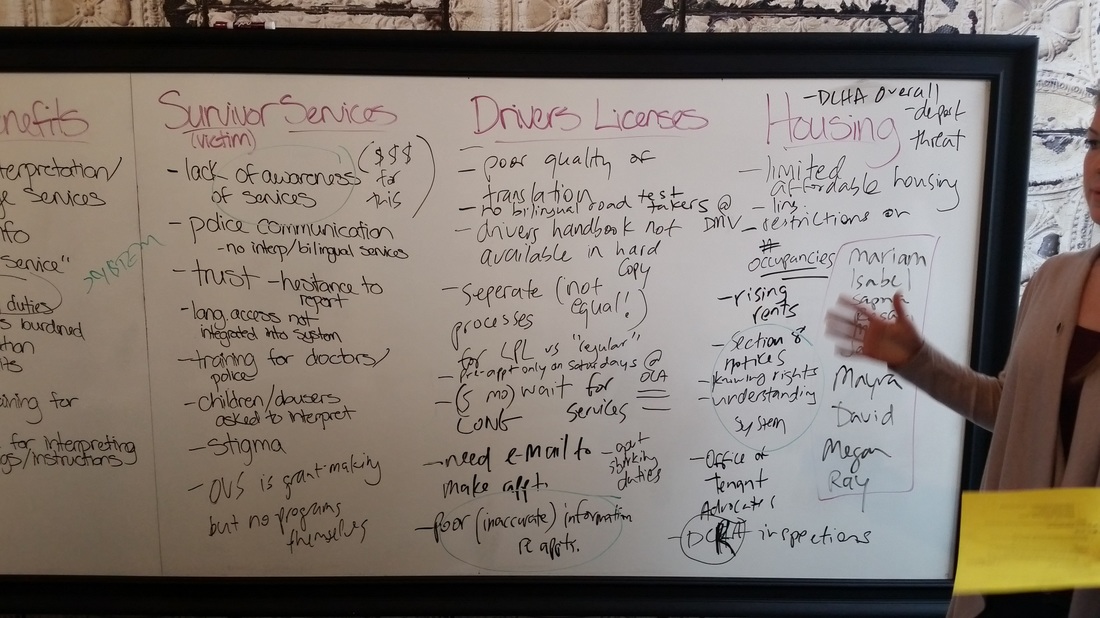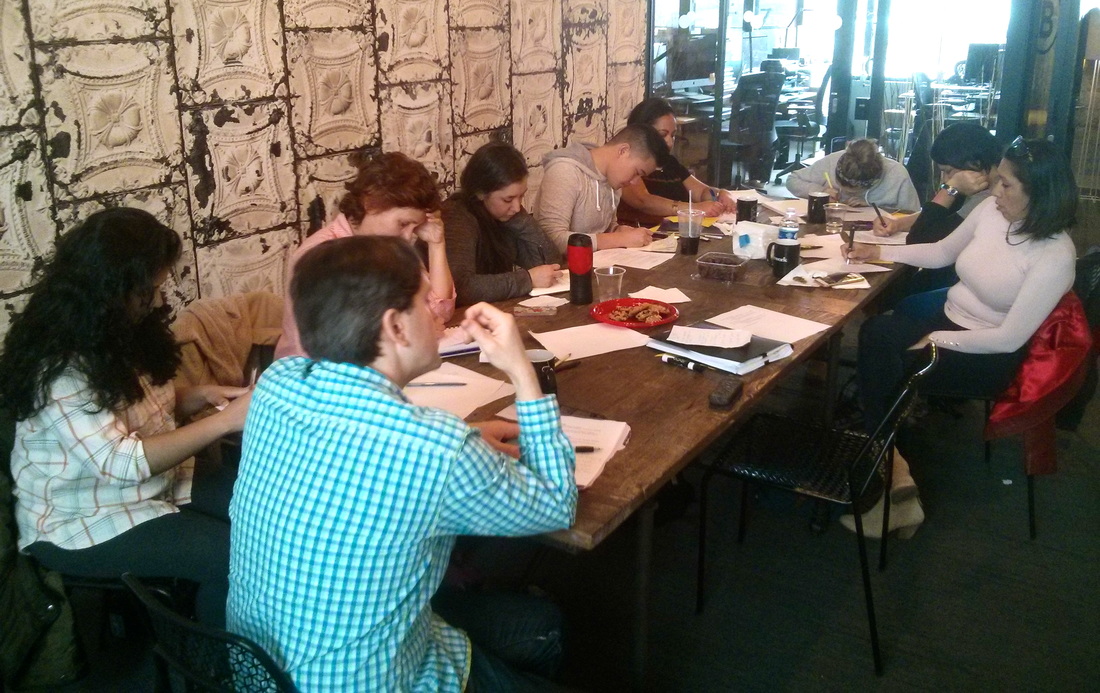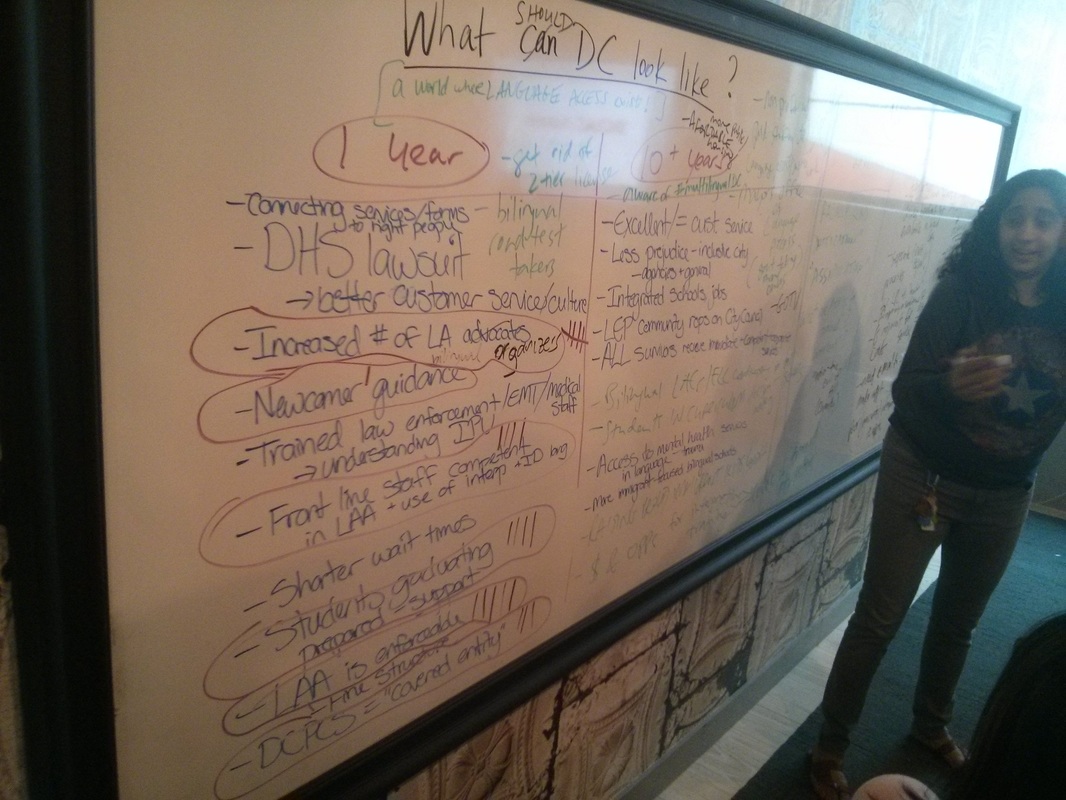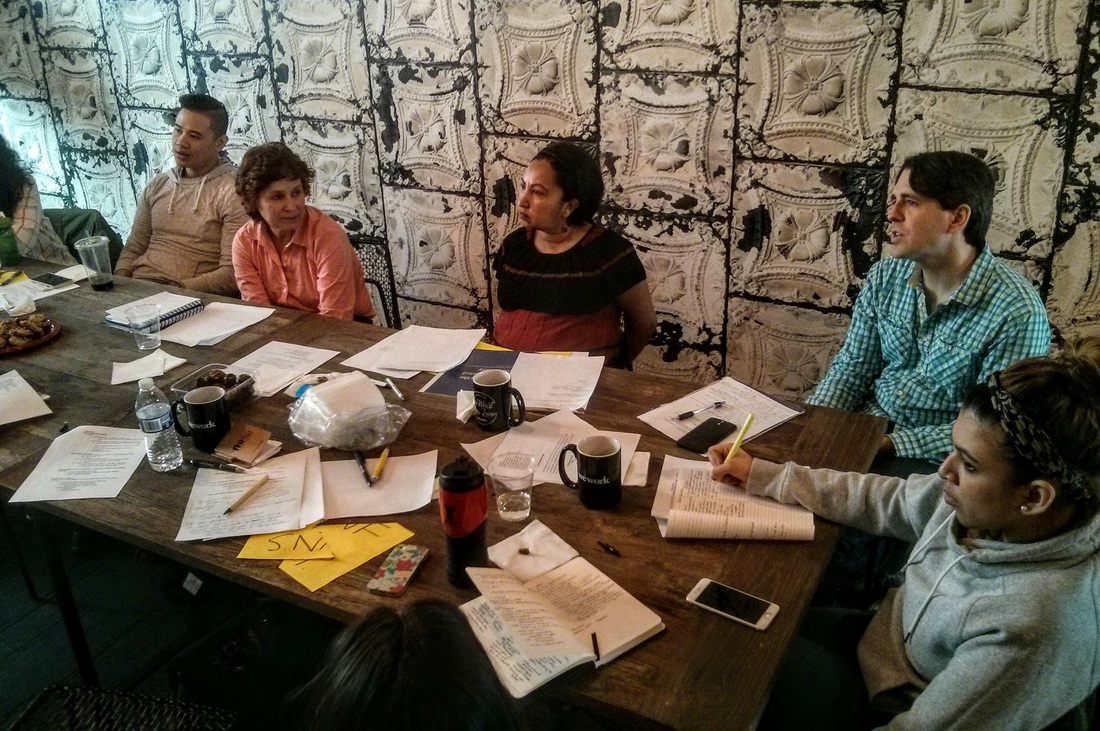|
After postponing our annual DCLAC Retreat due to the Great (Non-) Blizzard of February 2016, our members came together on a recent Saturday to discuss our work and shape our strategic plan for the next year. Our warm-up activity led to a vigorous discussion of numerous barriers in areas such as Education, Healthcare, Public Benefits, Survivor Services, Driver's Licenses, and Housing. This sparked stories of numerous instances of language injustice that our members have witnessed - of English Language Learner (ELL) students being isolated from their peers without appropriate support or resources; Limited-English Proficient and Non-English Proficient (LEP and NEP) community members lacking access to health insurance due to language barriers; patients not receiving in-language information about their health and misunderstanding medication instructions given only in English; government agency staff left without language access training and providing poor customer service; survivors of domestic violence being shuffled though the system while their abuser “interprets” for them; Limited Purpose Driver's License applicants waiting five months for an appointment; and residents who have housing vouchers being threatened with deportation. While we have made incredible progress in the last year alone, there is clearly a long way to go. Threading through all of these seemingly distinct problems are both systemic breakdowns of the institutions that are meant to serve all our residents and a lack of familiarity with these complex systems, which act to compound barriers. These wide-ranging issues and systemic barriers have the impact of inhibiting LEP and NEP community members’ access to services, programs, and benefits, while degrading dignity and marginalizing entire groups of people. Recognizing these widespread issues, we turned to envisioning how a DC with equity for LEP and NEP folks should look, and created One-Year and Ten-Year visions for a truly #multilingual city. Our top short-term priorities include: growing our cadre of multilingual organizers; ensuring that government agencies’ front-line staff are proficient in the Language Access Act (LAA) and working with interpreters; having ELL students graduate prepared and supported; defining charter schools as “covered entities” in the LAA to make sure they provide appropriate ELL services and support; and making the LAA enforceable by adding fines for agencies that break the law. In order to make these goals a reality, we have to work within the complex political and power structures at play in DC. To better understand how these forces function and influence our work, we discussed types of power, the people and organizations that hold power in DC, and how they work to support, oppose, or do not engage in a given issue. We will continue to use this tool to better understand and confront the forces working against language justice in our community, starting with a power-mapping workshop from MLOV’s standout Education Organizer, Ray Jose at our April 26th DCLAC meeting! Powered by a taco bar, homemade vegan cookies, and delicious dates, we continued on to unpack the data from our recent internal survey, revealing the incredible array of skills that our members have to contribute – from speaking Amharic to interpreting Vietnamese to videography to leading cultural competency trainings, our members do it all! Coupling these assets with the goals and strategies we set, we will continue our work to make #multilingualdc a reality – join us, and contribute to our work here!
0 Comments
|
Archives
March 2016
Language Access BlogLocal, national and global updates about language access news. Categories
All
|





 RSS Feed
RSS Feed
